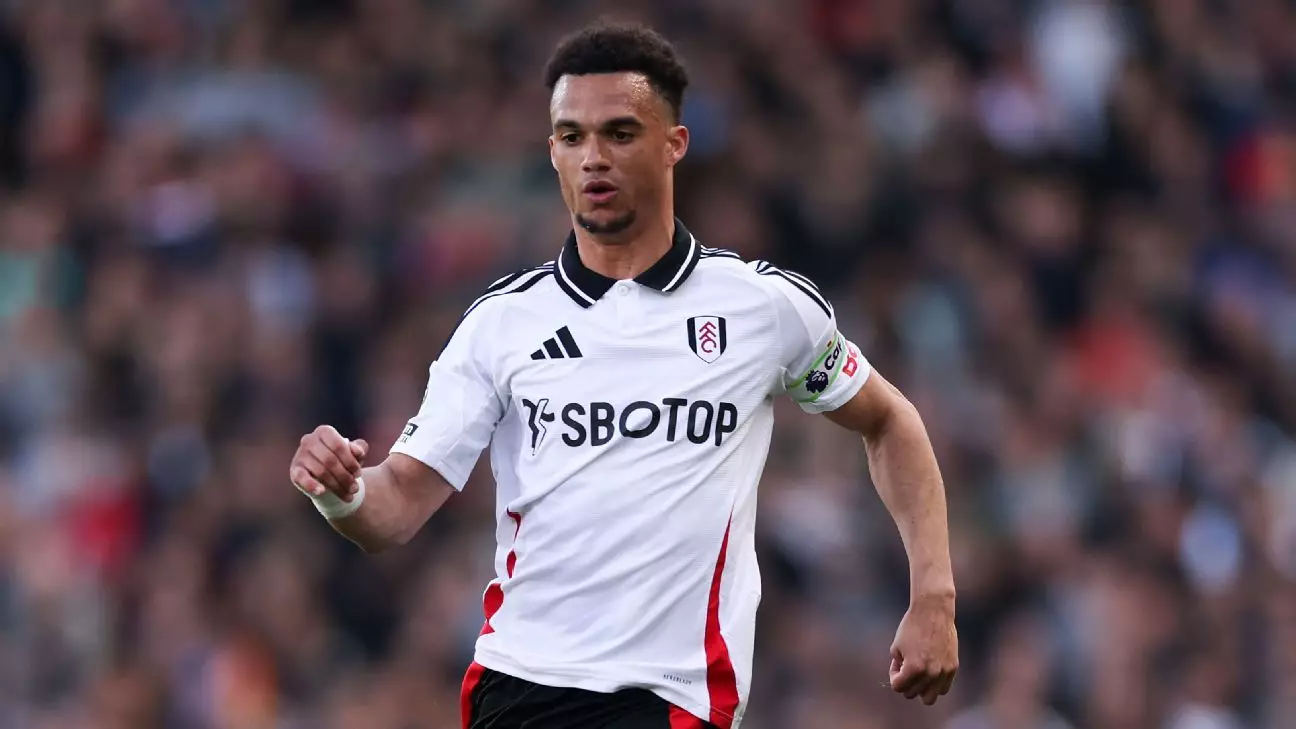Antonee Robinson, a talented defender for Fulham and an emerging star in American soccer, recently underwent knee surgery that has sidelined him from competing in the upcoming Concacaf Gold Cup. His absence from the tournament is not just a personal loss for the player; it has broader implications for the United States men’s national team (USMNT). Robinson has established himself as one of the standout American players across Europe’s elite leagues, but injuries in football often serve as a harsh reminder of the sport’s physical toll.
As the USMNT prepares for its Gold Cup campaign, starting with a group stage match against Trinidad and Tobago, the unavailability of key players creates a complicated scenario. Robinson is not alone in facing injury troubles; seasoned players like Weston McKennie, Timothy Weah, Giovanni Reyna, Yunus Musah, and Christian Pulisic are also missing from the roster. Such a situation raises questions about the team’s depth and the coaching decisions regarding player health.
Coaching Decisions Under Scrutiny
USMNT head coach Mauricio Pochettino defended his choices at a recent press conference, stating that the decision to leave out mainstay players was in the best interest of both the individuals and the team. Pulisic, for example, is recuperating after an exhaustive season in Europe, having clocked over 3,500 minutes on the pitch with AC Milan. Pochettino emphasized the importance of long-term player management, suggesting that participation in every possible game is not always advantageous. Critically, this perspective challenges the conventional wisdom that team cohesion derives solely from consistent player presence.
Pochettino also hinted at the value of time spent training and developing relationships within the squad, rather than merely competing together. This notion invites skepticism; after all, isn’t the essence of building a cohesive unit formed through shared experiences on the field? However, his philosophy suggests a more nuanced approach, prioritizing the health and readiness of key players—a principle that could ultimately pay dividends in the World Cup that looms ahead.
Reformulated Roster: Opportunity Amidst Adversity
With stars like Robinson and Pulisic unavailable, the current roster presents an opportunity for emerging talent to shine. This shift can foster new dynamics within the team, opening doors for less experienced but eager players to step up. The USMNT has historically thrived on its depth; this instance could allow for a refreshing evolution of the squad. The pressure to perform can galvanize players, instilling a sense of urgency and camaraderie that might redefine the team’s identity heading into the Gold Cup.
Injuries and roster changes are part and parcel of professional sports, and while the loss of established stars creates challenges, it also invites resilience and innovation. The USMNT may very well stumble initially, but through adversity, new leaders may emerge, ready to support the team’s ambitions in the competitive landscape of international soccer.
As the Gold Cup approaches, the narrative of the USMNT becomes one of adaptation and growth, bringing excitement amid uncertainty. With the right mix of strategy, preparation, and emerging talent, the team will face its challenges with renewed vigor.

